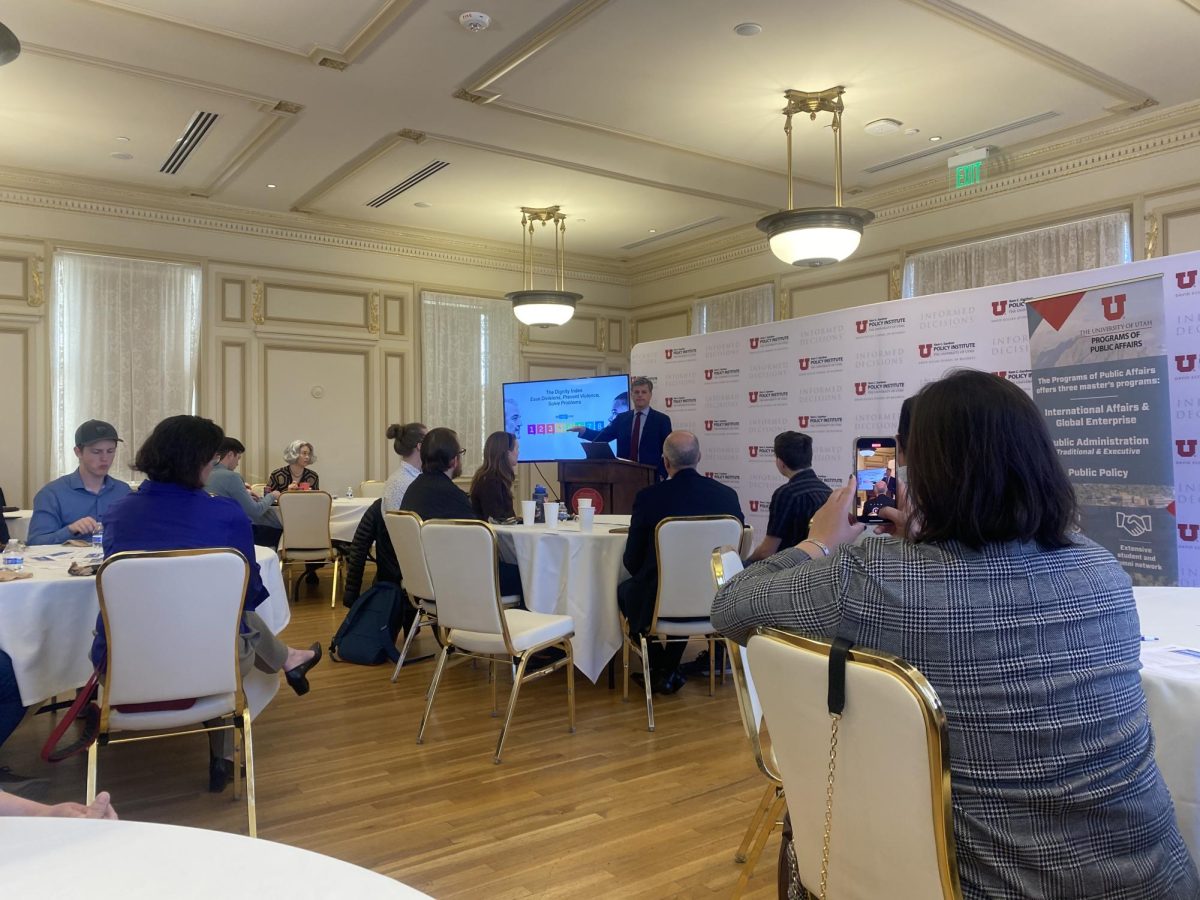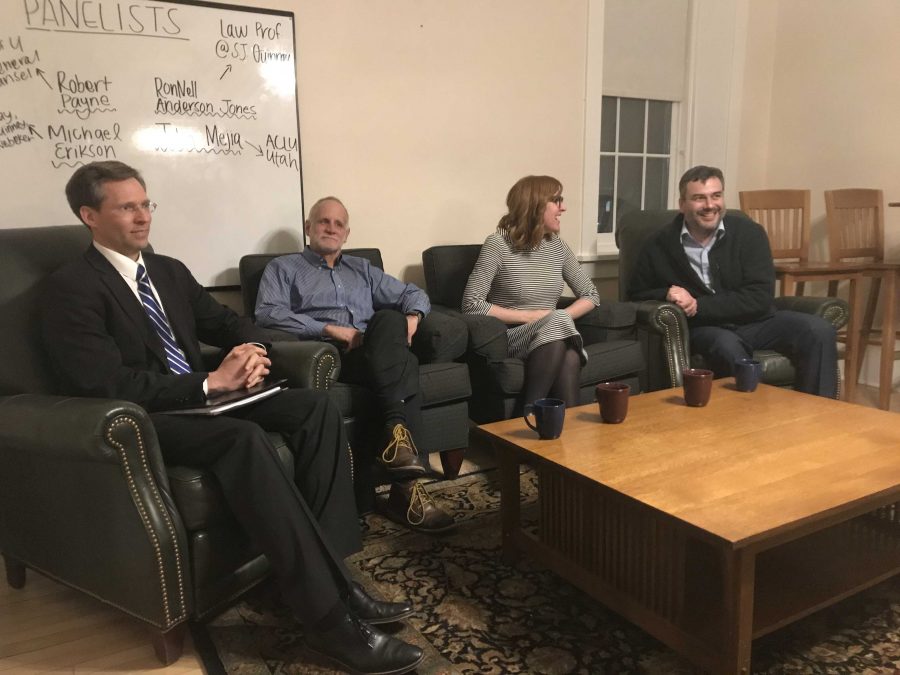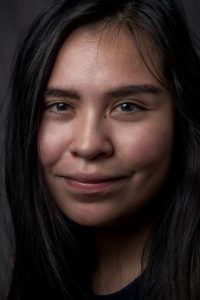Students gathered together at the Bennion Center’s Service House located in the U’s Officer’s Circle this past Tuesday to learn about the topics of first amendment rights and the protections of free speech and hate speech. These topics apply to discussions surrounding recent news on the U’s campus as well as in the nation’s political culture.
Part of a semester-long lecture series, the “Free Speech and the First Amendment: Service House Dialogue” featured a panel of four experts all holding a background in law and working in applicable legal fields.
Held in the Service House, the event was tightly packed and was facilitated like a dinner table conversation. On each of the participants’ chairs, a white slip of paper featured a unique Supreme Court case which focused on the first amendment.
The panelists included John Mejia, a policy director for the American Civil Liberties Union (ACLU); Michael Erikson, an attorney for Ray Quinney and Nebeker; Robert Payne, a member of the U’s general counsel and S.J. Quinney College of Law professor Ronnell Anderson Jones.
“The United States Supreme Court has been very clear that the Constitution doesn’t just protect speech in the sense of utterances, it protects a broader concept of freedom of expression,” Jones said.
An example of upholding these rights included a brief discussion regarding the popular free speech case, National Socialist Party of America v. Village of Skokie, that went to the Supreme Court in 1977. This case involved a neo-Nazi group and the largely Jewish town of Skokie, Illinois. The group famously sued the town for their attempts at stifle their right to exercise the first amendment with the aide and representation from the American Civil Liberties Union. It was ruled that the group should be allowed to march in the town, though they never did.
Mejia commented that this case showed an example of a group “standing up to the idea that despite the fact that these were literal Nazis with these very awful ideas, they still have the first amendment right to march and say whatever they want.”
Shelby Galinat, a first-year undeclared student at the U, attended the Service House dialogue event. After the questions and answer session with the panelists, the participants in the room split into two groups. Each group included two of the panelists, and participants could ask the panelists more specific questions on the event’s topics. Galinat was in a group with the two U affiliated panelists, Payne and Jones. Galinat recounted a recent experience involving her friend, a student of color, who had expressed concerns for her safety after Patriot Front, classified as a hate group by the Southern Law Poverty Center, hung a banner over the Legacy Bridge on campus.
Galinat asked whether this incident still falls under first amendment protections. Payne responded by reminding students that the U is a public institution and cannot exercise the same specific oversight on speech that private universities can, but the university can release statements denouncing hateful rhetoric. Both Payne and Jones said that all forms of speech are protected until it begins to incite violence.
In an article published recently by The Daily Utah Chronicle, Students for a Democratic Society (SDS), a campus group committed to social justice affairs, protested groups found engaging in hate speech and the previous acts by Patriot Front and Identity Evropa and called for these groups to receive institutional disciplinary action.
Galinat agreed that the policy to encompass all speech is important, as long as it doesn’t promote violence. However, she said that “it’s important that we have that sensitivity and understand that certain students aren’t going to feel safe” for those students who feel threatened by these recent campus incidents.
Wrapping up the event, the student moderators asked the panelists for their closing thoughts on the value of free speech and what ideas they encourage students to walk away with.
“Whether or not you buy into the world notion of the marketplace of ideas as a societal democratic jurisprudential norm, please buy into it as an individual educational norm,” Jones said. “And that is, expose yourself to a wide range of the points as you can, particularly during your college years.”

















